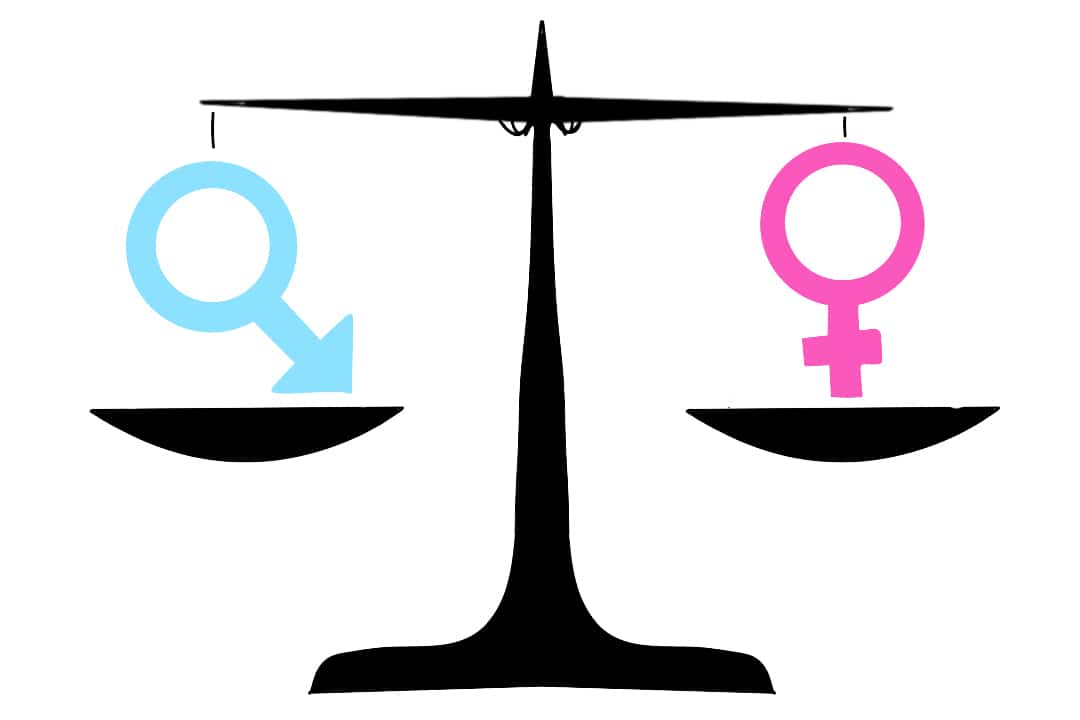Has this ever happened to you? You meet a pal, a study buddy, and everything’s going swimmingly. Then, while ‘studying’ at Robarts during a bout of procrastination, a TikTok on Andrew Tate shows up on your For You page. Your face contorts in disgust at the hatred that he spews, and you show your new friend. To your surprise, he responds, “He has a point.” God dammit, you mentally scream. Not another Tate fan!
One can be quick to say Tate just hates women, but that’s not the full story. Tate also brings up men’s rights, which, to most guys on first inspection, sounds reasonable. Yeah, men go through struggles too! Men also suffer with their mental health or get sexually assaulted! They also face body-image issues! But, the more you look into Tate’s views on men’s rights, the more you realize that there are a lot of reasons why you probably wouldn’t want to support them.
What is meninism?
According to Urban Dictionary, meninism is the belief that men are victimized by feminism and that more attention needs to be brought to the struggles of being a man in the twenty-first century.
In a purely satirical manner, meninists aim to “reclaim” men’s rights from what they believe to be an actively anti-masculinity society. Meninists, the supporters of meninism, talk about unfair standards for men, such as expectations to keep their emotions bottled up and be the breadwinner for their family. Given the emphasis meninism places on supporting men, it’s no wonder why TikToks on the subject grab young men’s attention so often.
So how do these young meninists support men’s rights? Usually by being anti-feminist and by deflecting issues of the patriarchy toward women. For instance, meninists are quick to blame feminism and left-wing antics if a woman gets a position that they wanted, or shout “Not all men” at the first mention of #MeToo. Meninists judge women for wearing makeup and say how women control the “dating market” — all in the name of male liberation.
I’m no expert in the manosphere, but to me, at least, it’s obvious why promoting meninism can be problematic. But when I squint really hard and look past the hate speech, I can see what I believe should be meninism’s end goal — to dismantle gender stereotypes and predestined gender roles.
The problem with meninism
Wait a minute — “dismantling gender stereotypes and predestined gender roles?” That sounds exactly like another school of thought called feminism, minus the hate speech. Wacky! Who’d have imagined feminism could have equal benefits for both men and women?
That’s the deal with feminism — equal rights for women doesn’t mean less rights for men. It simply means elevating a woman’s autonomy to the same level as a man’s. The struggle for women’s rights doesn’t end with writing a few lines of legislation or electing a handful of women in positions of power: there’s still so much left to do after that.
You might ask: if meninism advocates for equal gender rights in the same way feminism does, then perhaps it isn’t so bad after all? Well, while I believe that meninism was probably unproblematic at some point, it has since turned into a very questionable concept. After all, why branch off into a separate belief system to take down patriarchal standards when feminism attempts to do the very same thing? Plenty of feminists talk about these issues too, but they differ from meninists in that they don’t downplay the rights of another gender.
Where to go from here
Great, so we can write meninism off as a fad? Sadly, no. Let’s go back to Tate. He may just seem like a pop-up phenomenon, but the reality is that meninists exist in many places beyond just TikTok.
Overall, the way I see it, the problem with meninists is that they often use their own personal insecurities and hardships to excuse their misogynistic behaviour and attitudes toward women. They’re misled into believing that the only way to uplift men is through hatred against women.
However, that approach to uplifting men is harmful and destructive to both men and the women around them. But I don’t think the answer is to completely scrap masculinity, either. There are many ways to express one’s own masculinity, but putting down, objectifying, and dominating women are not healthy ways to do so. Instead, maybe we can transform masculinity and advocating for men’s rights into something healthy and uplifting for people of all genders.
Instead of using your hands for aggression and violence, use them to create, to love, and to nurture. Instead of silently struggling, reach out and seek help. And instead of thinking of masculinity as a monotonous construct, see it as a diverging identity that you, and only you, can define.
It’s a lot to ask for, so let’s start simple. The first thing you can do is dislike every Tate YouTube short you come across. Uplift yourself — you’re better than him.
Vincent Quach is a third-year student in Victoria College studying English, mathematics, and education.


